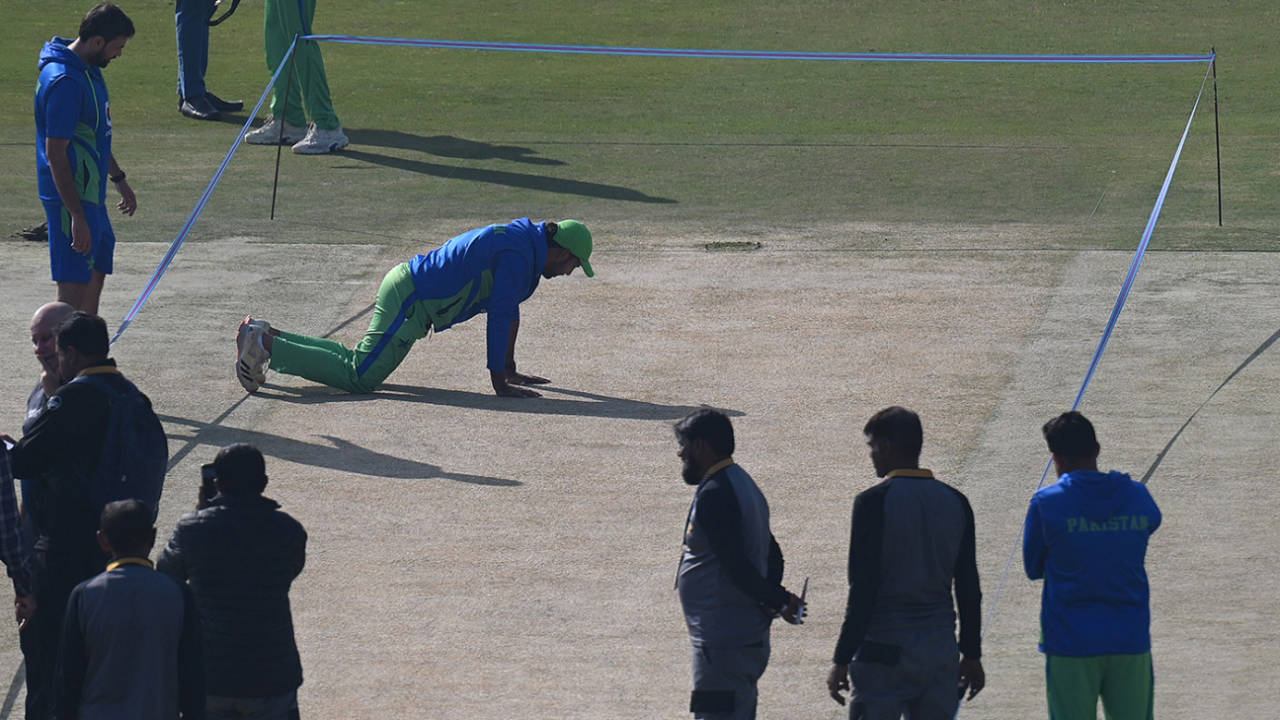Pitch battles: What should England expect on their return to Pakistan?
To hang in there or go for broke, they'll know soon enough
Alan Gardner
30-Nov-2022
Sarfaraz Ahmed inspects the pitch ahead of the first Test • AFP via Getty Images
It is 17 years since England last played Test cricket in Pakistan, and more than two decades since they managed to win a game there (one of only two victories in 24 attempts). In 2000-01, Nasser Hussain wanted his team to "stay in the series for as long as possible", a plan which came together beautifully as they stole the spoils under cover of dusk in Karachi.
This time around, Brendon McCullum has made it clear that draws are very much the last refuge of this England side - and even suggested that the tourists would accept being beaten as a result of pushing for the win. Their "Bazball" approach has been well documented, but will it pay off in conditions associated much more closely with grinding out results? And even if their batters can capitalise on what may be docile surfaces, do they have the tools to take 20 wickets, as Australia achieved during their 1-0 series win earlier this year?
Batters up
With Test cricket only having returned to Pakistan three years ago, due to the security situation and the reluctance of teams to tour, there is obviously a limited sample size on which to base assumptions about the style of cricket that might succeed. "I've told guys to not go in there with too many preconceived notions," Usman Khawaja said before Australia flew into the country in February. "We've toured India, Sri Lanka and Bangladesh, but I wouldn't be going over to Pakistan thinking they're going to be exactly the same wickets."
With Test cricket only having returned to Pakistan three years ago, due to the security situation and the reluctance of teams to tour, there is obviously a limited sample size on which to base assumptions about the style of cricket that might succeed. "I've told guys to not go in there with too many preconceived notions," Usman Khawaja said before Australia flew into the country in February. "We've toured India, Sri Lanka and Bangladesh, but I wouldn't be going over to Pakistan thinking they're going to be exactly the same wickets."
As Khawaja was to discover, on his way to a series-leading aggregate of 496 runs at 165.33, Pakistan can be very hospitable for batters. In fact, since December 2019, no Test-playing country has a higher average runs per wicket than the 37.28 achieved in Pakistan.
